This was the third time the biannual FCI World Team Championship for Rescue Dogs
was held, with 23 teams from nine countries - Belgium, the Czech Republic, Finland,
France, Germany, Italy, Japan, Romania and Slovenia - gathering for the competition
in Žatec (CZ) on 23.-26 August 2012. The Championship covered the following disciplines:
tracking, area search, rubble search and for the first time “universal search”.
The tracking, area search and rubble search teams were confronted with a search
task in their respective discipline, along with a joint obedience and dexterity
test. The “universal” teams by contrast were faced with all three search tasks at
the same level of performance, as well as the obedience and dexterity tests.
© Detlef Kühn
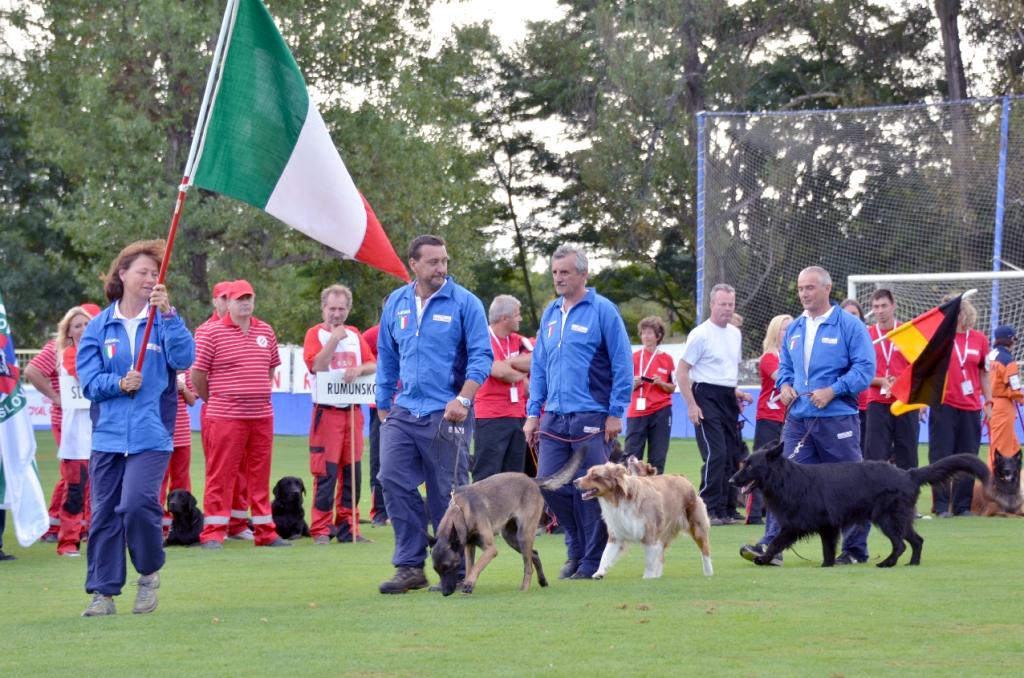

Defending champion Italy
The FCI Rescue Dog Commission headed by its president, Frans Jansen (NL), provided
an international judging panel full of well-known names. Jose Buggenhout (BE) -
tracking, Volker Marx (DE) - area search, Vilem Babicka (CZ) - rubble search, Kenji
Honda (JP) and Sirpa Pellikka (FI) - obedience and dexterity. Detlef Kühn (DE) acted
as supervisor, overseeing the whole event.
© Detlef Kühn


FCI Rescue Dog Commission President Frans Jansen in conversation with supervisor Detlef Kühn
The event was organised by the SZBK under the leadership of Helena Šabatová. She
was supported by many helping hands and a large number of sponsors, doing all she
could to ensure a well-organised FCI Team World Championship. The one big problem
was the stadium. Up to the day before the event, the Interior Ministry had promised
that the stadium would be available. But shortly before the opening ceremony consent
was withdrawn, meaning that the organising committee was faced with the major task
of renting a football pitch at short notice, thereby ensuring the Championship could
take place. This change of venue meant that there were not nearly as many spectators
as expected, which was very unfortunate given the high level of performance offered
by the teams. The area for the search tasks was prepared in accordance with the
regulations.
© Detlef Kühn


Members of the FCI Rescue Dog Commission at the award ceremony
Participants were confronted with extreme weather conditions, ranging from sultry
heat to heavy showers and strong gusts of wind.
Tracking took place on a 30 x 30 metre overgrown field, in which a marker had first
to be found. Once this starting point had been found, the track took the dogs through
several different types of land difficult to cope with, with eight objects needing
to be found. At the end of the ca. 3-km course, the person sought needed to be tracked
down and marked by the tracking dog. The Czech team, led by Miroslav Šimek and with
Miloslav Čeněk, Ludmila Mašatová and Alice Zelinková as its members, ended up clear
winners of the tracking championship, with Germany coming in second and France third.
© Detlef Kühn
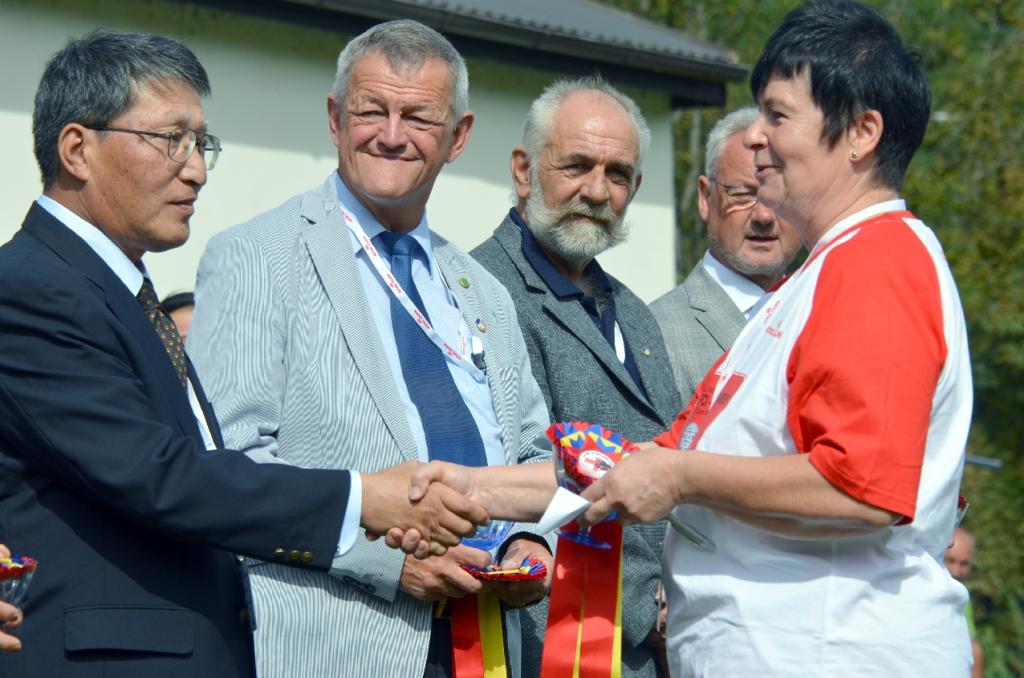

Helena Šabatová, in charge of organising the event, thanks the judges
© Detlef Kühn


The Japanese team receiving its instructions for the rubble search
The rubble search discipline saw teams having to search a 5,000 m2 area of buildings
and tunnels, looking for three missing people who were either buried under up to
two metres of rubble or were hidden in high places.
The surprise winner was the Finnish team led by Majka Borgström with the rescue
dog teams Nina Pulli, Hannu Saami and Sam Widlund. Second place went to the Czech
Republic and third to Slovenia.
© Detlef Kühn
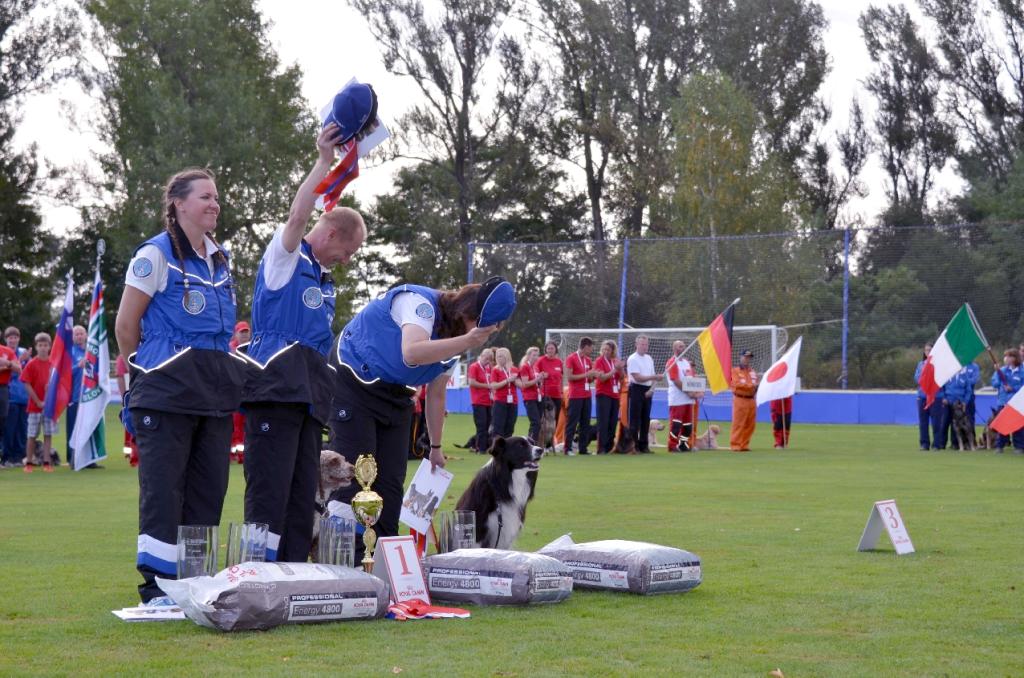

Finland wins the FCI Rubble Search World Championship
© Detlef Kühn
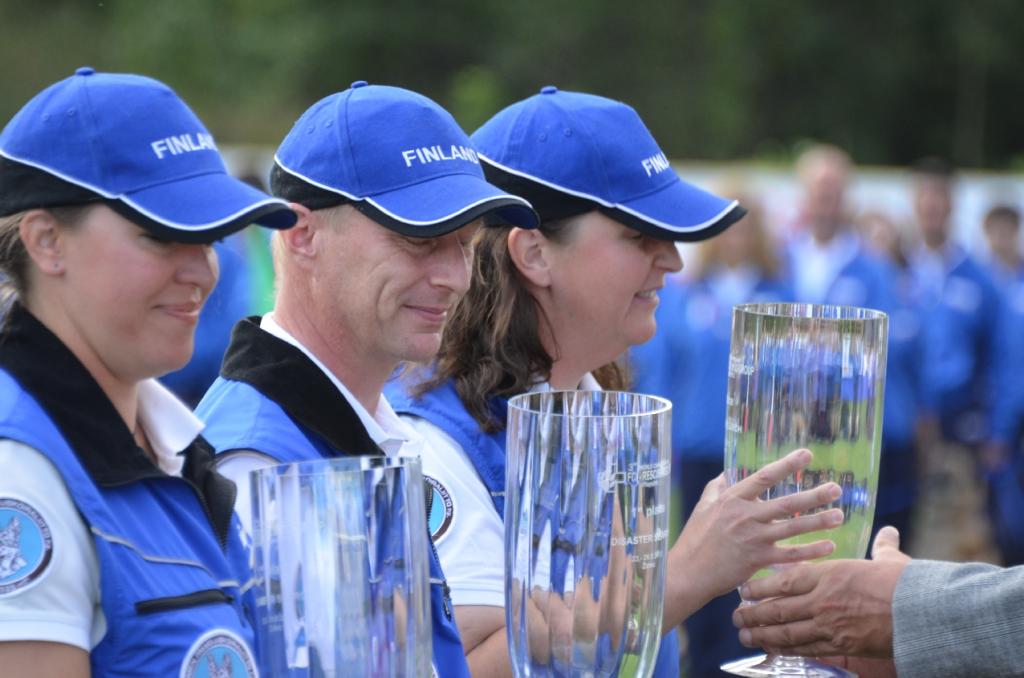

Finland wins the FCI Rubble Search World Championship
The challenges facing teams competing in the “universal” discipline, in which all
rescue dog teams need to be trained in all three tracking disciplines, were best
mastered by the German team led by Denny Stübling. His team, consisting of Cornelia
Höfler, Renate Eberts and Dr Isabella Kühn, were clear winners of the first FCI
“Universal” Team Championship title, ending up way in front of the Czech Republic.
© Detlef Kühn
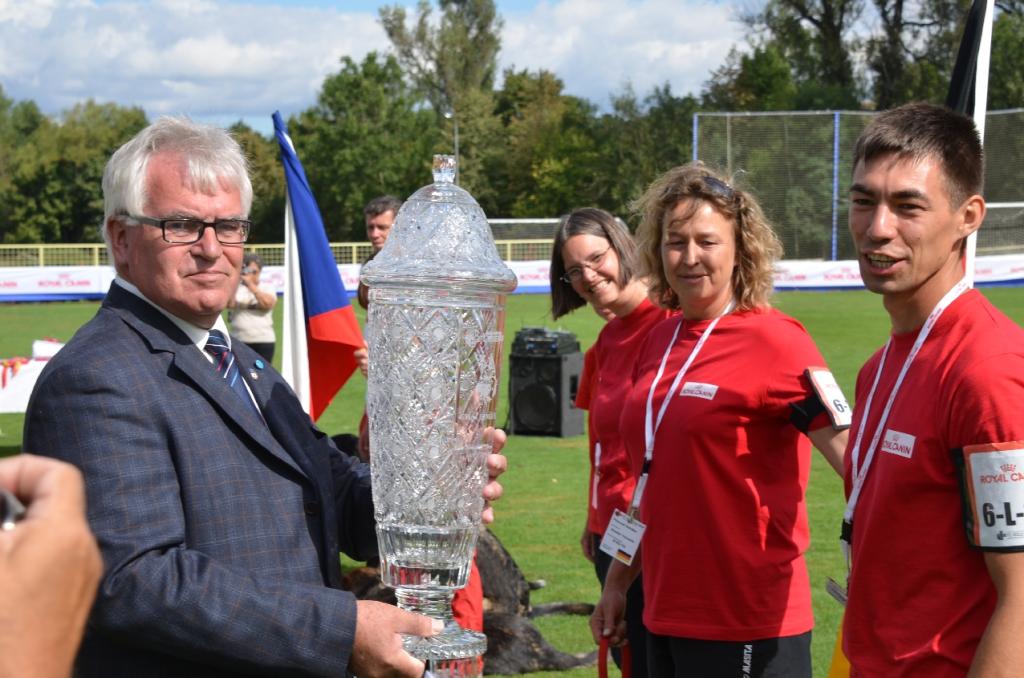

FCI Rescue Dog Commission president Frans Jansen awards the German “universal” team the Challenge Cup for the best team in the top trial level.
© Detlef Kühn
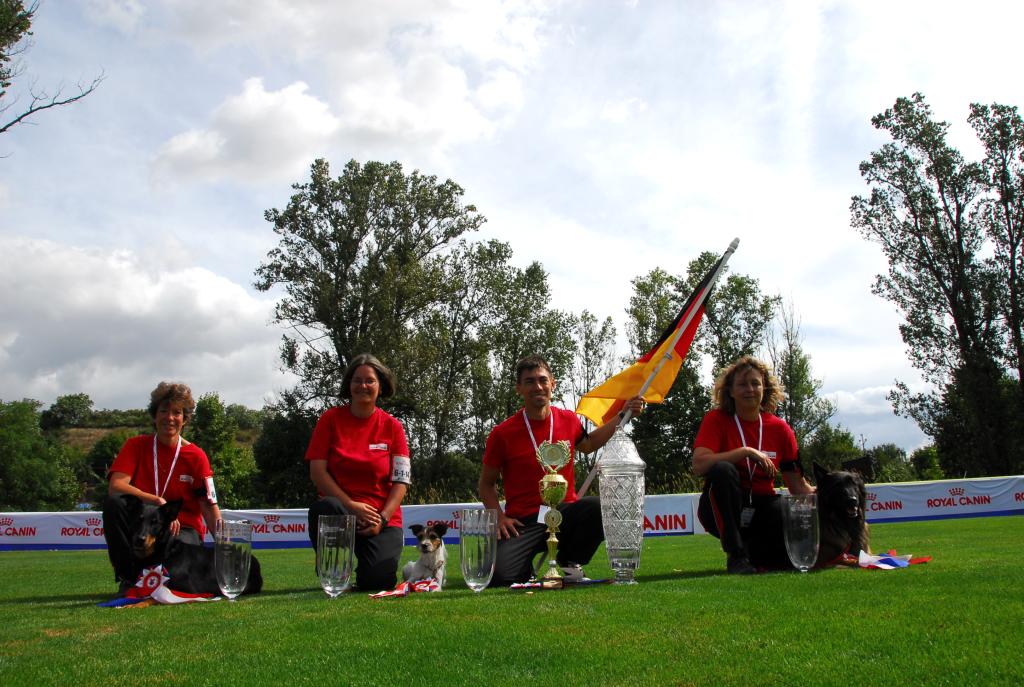

The FCI World Championship title for “universal” teams goes to Germany
Detlef Kühn
Superviseur